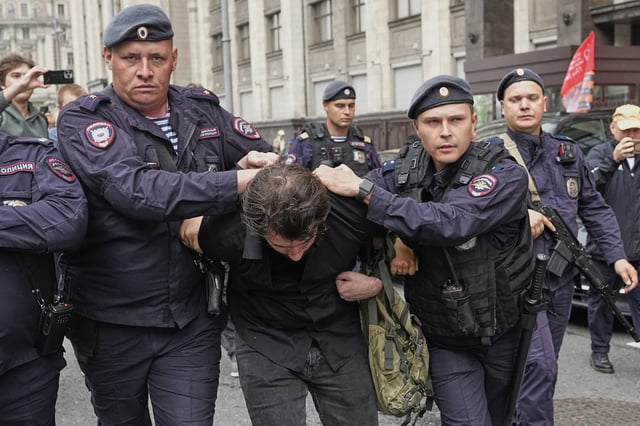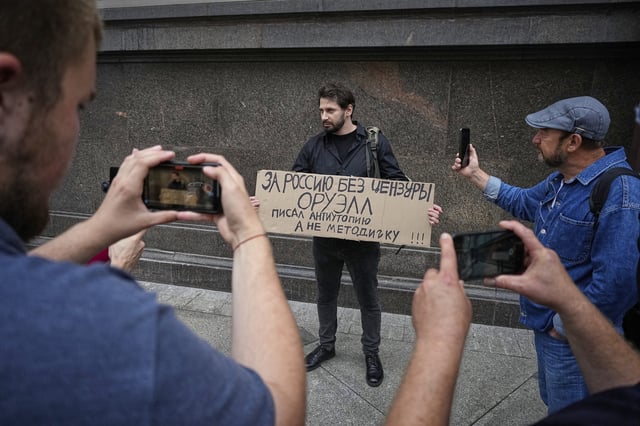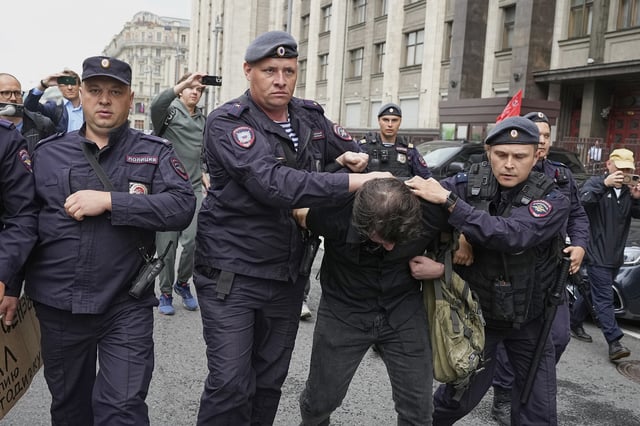Overview
- The State Duma approved the measure by a 306–67 vote and sent it onward to the Federation Council before President Putin’s anticipated signature
- Under the legislation, anyone found to have knowingly searched content on the Ministry of Justice’s 5,473-entry extremist registry faces fines of up to 5,000 rubles
- The bill prohibits advertising for virtual private network services and designates VPN use as an aggravating circumstance in related prosecutions
- Enforcement mechanisms remain undefined, with proposals to draw on data from internet providers, social platforms or random device inspections
- Opposition figures, some pro-Kremlin voices and protesters—including journalists—have denounced the measure and staged demonstrations that led to arrests



